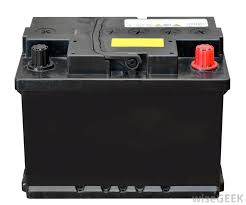Description
Automotive battery is widely used for starting, lighting and ignition purposes in automobiles. These batteries also provide voltage supply to vehicle accessories such as radio, music players, air conditioners, wipers and charging plugs.
Increasing vehicle production coupled with rising adoption of vehicle electrification are anticipated to be the major factors that will create vast opportunities for key players in automobile lead acid battery market.
Automotive battery market size is expected to reach USD 23.5 billion by 2024, growing at a compounded annual growth rate (CAGR) of five point seven percent (5.7%) during the forecast period 2016-2024.
The automotive battery market is driven by various factors such as increasing number of automobiles on road, rising infrastructure and as well as rising urbanization.
Further, integration of features in automobiles like hands free calling, state of art sensors and car infotainment system have flourished the demand for automotive battery.
Moreover, the new fuel saving technologies such as smart hybrid vehicle system (SHVS) are also leading to higher battery usage. These factors are envisioned to bolster the growth of automotive battery market.
By vehicle type, automotive battery can be classified into
Two-wheeler
Three-wheeler
Passenger vehicle
Commercial vehicle
Electric vehicle
Based on vehicle type, passenger cars accounted for the largest market share of more than forty-five percent (45%) in 2016.
Moreover, passenger cars are expected to be the fastest growing and most opportunistic segment over the forecast period owing to emerging market of electric vehicles.
By battery type, automotive battery can be classified into
Lithium ion
Nickel-metal hydride
Nickel-cadmium
Gasoline
Lead-acid
Smuggling, grey imports of second-hand vehicles and the lack of reliable data make the exact size of Nigeria’s vehicle market and fleet size difficult to quantify. Challenges concerning the licensing and identification of vehicles further contribute to this difficulty.
According to National Bureau of Statistics (NBS), vehicle population in Nigeria is eleven million, four hundred and sixty thousand (11,460,000) with commercial vehicles accounting for the largest share.
This report examines the financial viability of importing, storing and selling lead–acid battery into Nigeria.
The global lead–acid battery market share reached a value of $56.9 billion in 2017 and is predicted to generate $70.7 billion by 2023, growing with a compounded annual growth rate (CAGR) of three point seven percent (3.7%) during the forecast period.
Lead-acid battery converts chemical energy into electrical power using lead peroxide and sponge lead and is composed of lead oxide and lead plates immersed in sulfuric acid solution.
Lead-acid batteries are expensive and have a relatively short life span. Lead-acid batteries are highly recyclable, with many countries achieving recycling rates of more than ninety percent (90%).
However, that doesn’t mean they can go into the waste bin at home. Toxic substances like lead can leak into the environment when car batteries and other lead-acid batteries end up in landfill.
Lead acid battery dumped in the wild pollutes one (1) m3 of the earth for over one hundred (100) years.
The global battery recycling market is expected to grow from $9.97 billion in 2020 to $11.04 billion in 2021 at a compound annual growth rate (CAGR) of ten point seventy-six percent (10.76%). The market is expected to reach $16.90 billion in 2025 at a compound annual growth rate (CAGR) of eleven point twenty-three percent (11.23%).
The problems caused by discarded lead-acid battery wastes and lead smelter wastes in Nigeria are well recognized. In most cases, ignorance of the toxic effects caused by excessive exposure to lead resulted in many cases of childhood lead poisoning.
Exposure to lead can causes harmful health effects including damage to the central nervous system, the kidneys, the cardiovascular system, and the reproductive system.
In recent years, lead recovery from spent lead-acid batteries has received increased attention. Ogunseitan and Smith estimated that Nigeria could save $1 billion every year per fifty percent (50%) decrease in childhood bill in health care costs, and the costs of lead exposure for adults is total $7 billion.
Recent estimates by the Recycling and Economic Development Initiative of Nigeria (REDIN) indicate that Nigeria currently generates about one hundred and eighty-four thusand (184,000) tons of used lead acid batteries from the automotive and renewable energy sectors annually. They are recycled and exported to markets in India and China.
This report seeks to examine the financial viability or otherwise of establishing waste car battery recycling plant in Nigeria to produce lead ingot of 99.97% for export with plastic pallets and electrolites as bye-products.
The relevant machinery and equipment required for recycling waste car battery comprises of rotary furnace, flue gas chamber for rotary furnace, primary air pollution control device, wet scrubber along with accessories, refining pot, battery cutting machine and jumbo ingot moulds.
The production capacity of the proposed plant is one hundred (100) tons per day and it would operate at seventy-five percent (75%) of the installed capacity working triple shifts of eight (8) hours each for three hundred (300) days per annum.
The plant would produce lead ingot 99.97% purity, waste plastic and electrolyte though the financials would be based on earnings from the sales of lead ingot 99.97% purity only.

